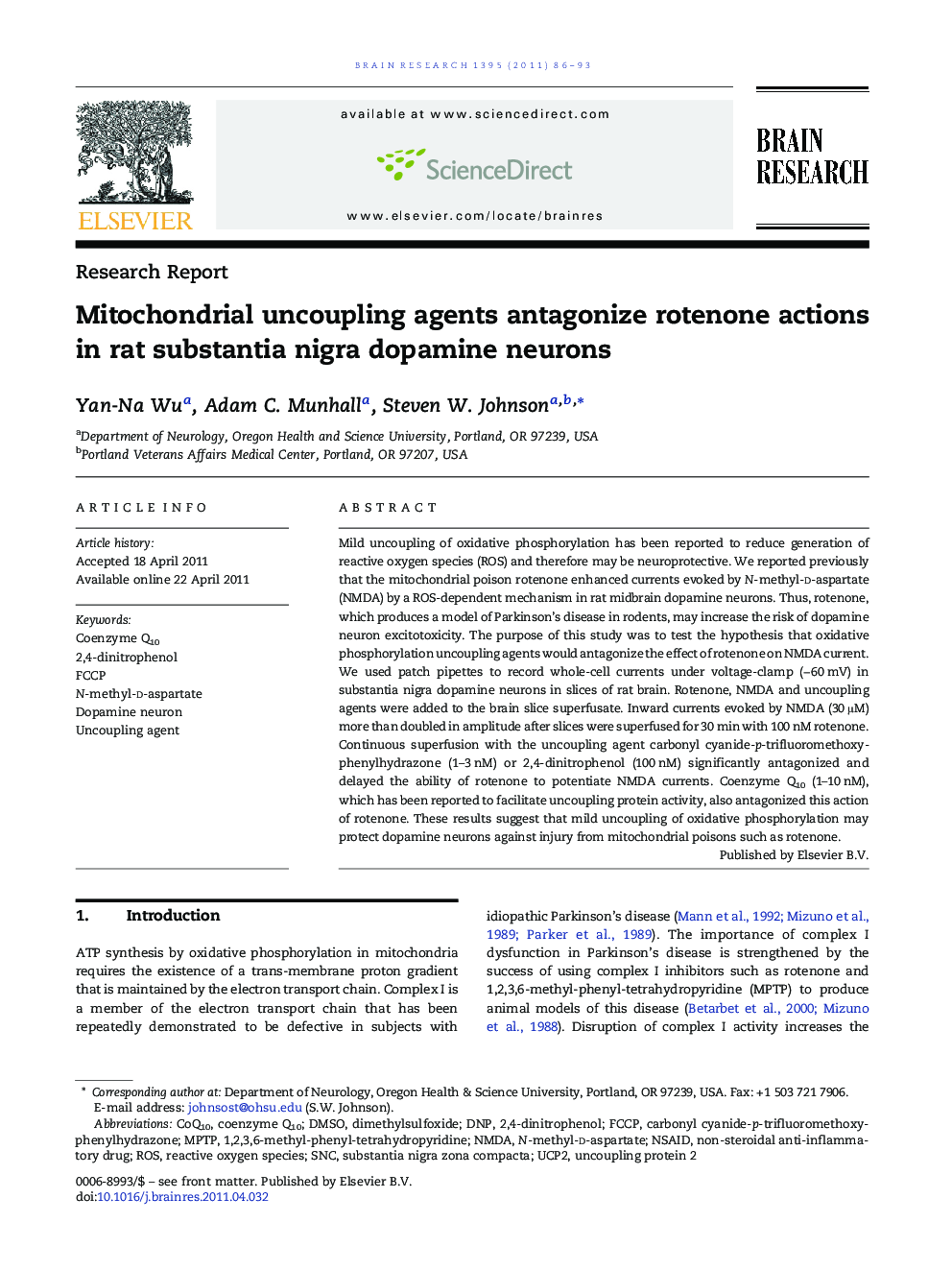| کد مقاله | کد نشریه | سال انتشار | مقاله انگلیسی | نسخه تمام متن |
|---|---|---|---|---|
| 4325914 | 1614044 | 2011 | 8 صفحه PDF | دانلود رایگان |

Mild uncoupling of oxidative phosphorylation has been reported to reduce generation of reactive oxygen species (ROS) and therefore may be neuroprotective. We reported previously that the mitochondrial poison rotenone enhanced currents evoked by N-methyl-d-aspartate (NMDA) by a ROS-dependent mechanism in rat midbrain dopamine neurons. Thus, rotenone, which produces a model of Parkinson's disease in rodents, may increase the risk of dopamine neuron excitotoxicity. The purpose of this study was to test the hypothesis that oxidative phosphorylation uncoupling agents would antagonize the effect of rotenone on NMDA current. We used patch pipettes to record whole-cell currents under voltage-clamp (− 60 mV) in substantia nigra dopamine neurons in slices of rat brain. Rotenone, NMDA and uncoupling agents were added to the brain slice superfusate. Inward currents evoked by NMDA (30 μM) more than doubled in amplitude after slices were superfused for 30 min with 100 nM rotenone. Continuous superfusion with the uncoupling agent carbonyl cyanide-p-trifluoromethoxy-phenylhydrazone (1–3 nM) or 2,4-dinitrophenol (100 nM) significantly antagonized and delayed the ability of rotenone to potentiate NMDA currents. Coenzyme Q10 (1–10 nM), which has been reported to facilitate uncoupling protein activity, also antagonized this action of rotenone. These results suggest that mild uncoupling of oxidative phosphorylation may protect dopamine neurons against injury from mitochondrial poisons such as rotenone.
► Rotenone is a mitochondrial poison that increases reactive oxygen species.
► We showed previously that rotenone augments NMDA currents in rat dopamine cells.
► We found that mitochondrial uncoupling agents delay this effect of rotenone.
► Uncoupling agents might protect dopamine neurons from excitotoxicity.
Journal: Brain Research - Volume 1395, 13 June 2011, Pages 86–93